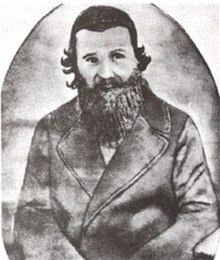Rav Aharon’s springboard for his paper on העוסק בתורה פטור מן המצוה is the Rambam אישות טו:ב. The Rambam there applies העוסק במצוה פטור מן המצוה to Torah Learning.
האיש, מצווה על פרייה ורבייה; אבל לא האישה. ומאימתיי יתחייב האיש במצוה זו, מבן שש עשרה שנה או מבן שבע עשרה שנה. וכיון שעברו עשרים שנה ולא נשא אישה--הרי זה עובר, ומבטל מצות עשה; ואם היה עוסק בתורה, וטרוד בה, והיה מתיירא מלישא אישה, כדי שלא יטרח במזונות וייבטל מן התורה--הרי זה מותר להתאחר: שהעוסק במצוה, פטור מן המצוה; וכל שכן, בתלמוד תורה.
This Rambam is problematic because it contradicts other quotes from the Rambam which seem to indicate that העוסק במצוה פטור מן המצוה doesn't apply to the mitzva of learning torah. For instance, in Hilchot Kriat Shema(ב:ה) and Tefila(ו:ח) the Rambam implies that one should stop learning Torah in order to perform a mitzvah deoraita, such as Kriyat Shema.
היה עוסק בתלמוד תורה, והגיע זמן קרית שמע--פוסק וקורא; ומברך לפניה, ולאחריה. היה עוסק בצורכי רבים--לא יפסיק, אלא יגמור עסקיהן; ויקרא, אם נשאר עת לקרות.
מי שהיה עוסק בתלמוד תורה, והגיע זמן התפילה--פוסק ומתפלל; ואם הייתה תורתו אומנותו ואינו עושה מלאכה כלל, והיה עוסק בתורה בשעת תפילה--אינו פוסק, שמצות תלמוד תורה גדולה ממצות תפילה. וכל העוסק בצורכי רבים, כעוסק בדברי תורה.
Along the same lines, we have the Rambam in Talmud Torah(ג:ג-ד) which says that one must stop learning in order to do a mitzvah, unless it can be done by others.
אין לך מצוה בכל המצוות כולן שהיא שקולה כנגד תלמוד תורה, אלא תלמוד תורה כנגד כל המצוות כולן--שהתלמוד מביא לידי מעשה. לפיכך התלמוד קודם למעשה, בכל מקום: [ד] היה לפניו עשיית מצוה ותלמוד תורה--אם אפשר למצוה להיעשות על ידי אחרים, לא יפסיק תלמודו; ואם לאו, יעשה המצוה ויחזור לתורתו.
Finally, Rav Aharon also brings another problematic Rambam, this one from Megilla(א:א).
קריאת המגילה בזמנה, מצות עשה מדברי סופרים. והדברים ידועים שהיא תקנת הנביאים. והכל חייבים בקריאתה: אנשים, ונשים, וגרים, ועבדים משוחררים. ומחנכים את הקטנים לקרותה. ואפילו כהנים בעבודתן, מבטלין עבודתן ובאין לשמוע מקרא מגילה, וכן מבטלים תלמוד תורה לשמוע מקרא מגילה; קל וחומר לשאר מצוות של תורה, שכולן נדחין מפני מקרא מגילה. ואין לך דבר שנדחה מקרא מגילה מפניו, חוץ ממת מצוה שאין לו קוברין; שהפוגע בו – קוברו תחילה, ואחר כך קורא.
What is the nature of the Kal Vachomer here? How can we learn from the fact that we stop learning Torah to hear Megilla that the same applies to other mitzvot? Torah learning must always be stopped to do a mitzvah while other mitzvoth get a break thanks to העוסק במצוה פטור מן המצוה so the Kal Vachomer seems invalid.
Answers
Rav Aharon quotes a number of answers to the problem of these contradictory Rambams. Ultimately, he points out problems with all of them and offers his own answer:
- The Maharam Shik bases his answer on Ben Azai’s explanation of why he never married, saying that others can fulfill the mitzva. Rav Lichtenstein rejects this, pointing out that Pru Urvu is a Chovat Gavra and cannot be fulfilled by another
- The Aruch Hashulchan says that we merely allow deferring Pru Urvu, not exempting one entirely, but Rav Lichtenstein says this doesn’t fit the Rambam’s language of פטור מן המצוה
- The Baal Hatanya explains that the ptur exists only when the tradeoff being considered is never developing his Torah Understanding properly versus pushing-off Pru Urvu temporarily. Again, Rav Lichtenstein doesn’t think this explanation doesn’t fit the Rambam’s language
Finally, Rav Lichtenstein’s own answer is what we mentioned previously—that Haosek Bemitzva Patur Min Hamitzva actually does theoretically apply to Talmud Torah. The problem is that in most cases, using that ptur would nullify the על מנט לעשות aspect of the learning and thus invalidate it. As such:
- The Rambam in Ishut now makes sense since pushing-off Pru Urvu temporarily doesn’t nullify על מנט לעשות
- The Rambam’s kal vachomer in Megilla now makes sense since העוסק במצוה פטור מן המצוה does, at the most basic level, apply to Talmud Torah.
Rav Scheinberg's Explanation
As long as we're discussing the opinions of various acharonim about העוסק במצוה פטור מן המצוה as applied to Talmud Torah, I'll just add Rav Pinchas Scheinberg's explanation. My brother-in-law Elimelech said that he writes in his book Mishmeret Chaim that העוסק במצוה does apply to Torah Learning, at a fundamental level, but that there's a technical reason why one must stop learning to do a mitzva, in practice. What is the unit of Torah Learning? Every word you learn is considered a mitzva, such that, once you finish the current word, you are not longer involved in the mitzva and therefore your ptur from being עושק במצוה is over.
Presumably this explanation isn't coming to explain the textural difficulties in the Rambam. Also, it seems that one could argue against the assumption that each word is a separate mitzva. That said, I haven't seen this opinion in the text yet, so it may be that I'm mis-characterizing it.



No comments:
Post a Comment